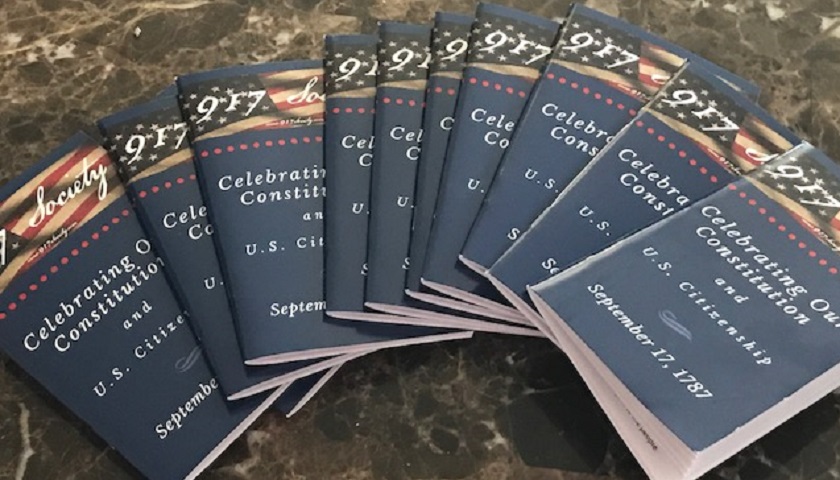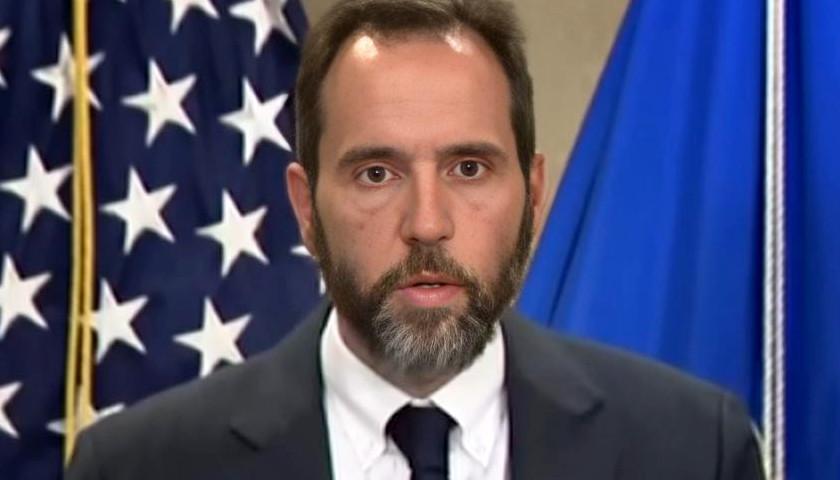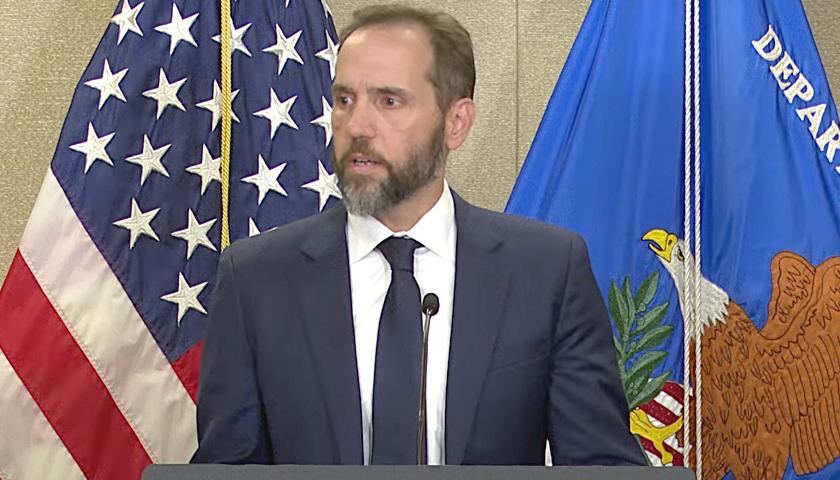August 2018 marks the 40th anniversary of the very last time that Congress proposed an amendment to the United States Constitution. It was on August 22, 1978, that the 95th Congress offered to the state legislatures for ratification a constitutional amendment that–had it been ratified by the required number of states within its 7-year deadline on August 22, 1985–would have granted to Washington, D.C. two United States Senators and however many members of the United States House of Representatives the District of Columbia’s population would have warranted.
But the lack of action by Congress over the past four decades in proposing constitutional amendments certainly has not meant that there is no desire among Americans to change the federal Constitution.
Gaining momentum during that same decade of the 1970s was a movement within the state legislatures to trigger the calling of an “Article V Convention” whereby state lawmakers may largely–but not entirely–bypass a recalcitrant Congress and push for a federal constitutional amendment that, perhaps, Congress might understandably prefer to suppress. In this particular case, that would be an amendment requiring the federal budget to be in balance.
Article V of the U.S. Constitution provides in pertinent part: “The Congress…on the application of the legislatures of two thirds of the several states, shall call a convention for proposing amendments, which…shall be valid to all intents and purposes, as part of this Constitution, when ratified….”
From the year 1787 to present, this alternate method of proposing an amendment to the U.S. Constitution has never quite reached the threshold of 34 (two-thirds) of the state legislatures to launch the calling of a convention. All 27 of the Constitution’s amendments were proposed by Congress. And it is important to keep in mind that Congress cannot be completely sidestepped in this alternative route because Article V reposes in none other than Congress the decision to call the convention if Congress receives enough applications from the state legislatures to nudge them into action.
In The Federalist No. 85, Alexander Hamilton offers an assurance that Congress is duty-bound to act, once the requisite number of state legislatures have applied for an Article V Convention:
“By the fifth article of the plan, the Congress will be obliged ‘on the application of the legislatures of two thirds of the States…to call a convention….’ The words of this article are peremptory. The Congress ‘shall call a convention.’ Nothing in this particular is left to the discretion of that body.”
Although Article V uses the plural–“proposing amendments”–not limited to just one amendment, nevertheless, as far as Congress is concerned, the state legislatures have yet to muster 34 unrescinded applications similar enough to each other to spur Congress to actually call a convention. There have, however, been times that the state legislatures have come very close. And as no such convention has ever been called–and with Article V being so short on details–there is a lengthy list of procedural questions as to how such a convention would conduct its business if ever actually brought to fruition.
That fear factor has itself produced some success, though. Around 1911 and 1912, for example, Congress was so spooked by the prospect of enough state legislatures applying for an Article V Convention on the topic of direct election of United States Senators, that Congress simply acquiesced and proposed the desired amendment in order to pre-empt the many unknowns of an Article V Convention.
As noted above, several of the state legislatures had sent to Congress during the 1970s convention applications for an amendment which would mandate a balanced federal budget. Joining that movement in 1977, Tennessee state lawmakers adopted House Joint Resolution No. 22 by Wallace, et al., on that particular subject. By the time 1983 rolled around–with Missouri’s application that year–the effort stood at 32 of the required 34 states prodding Congress to call such a convention.
On occasion, Congress did cast votes upon proposing a Balanced Budget Amendment for the consideration of the states, but it always fell short of the constitutionally-required two-thirds of both the U.S. Senate and U.S. House of Representatives.
Then, in 2010, the Tennessee General Assembly adopted House Joint Resolution No. 30 by Casada, et al., which rescinded the 1977 House Joint Resolution No. 22, thus taking Tennessee off of the table in the national push for an Article V Convention on the matter of balancing the U.S. government’s budget.
But, just four years later in 2014, Tennessee legislators reversed themselves again and turned the light back on with an official call for an Article V Convention for a balanced federal budget amendment when they approved House Joint Resolution No. 548 by Powers, et al.
While the U.S. House of Representatives belatedly received Powers’ 2014 H.J.R. No. 548 on December 1, 2015, and referred it to the House’s Committee on the Judiciary on that date, still–to this very day in 2018–the U.S. Senate has not gotten a formal copy of it, as evidenced by the fact that it appears nowhere on the pages of the Senate’s portion of the Congressional Record or within the Journal of the U.S. Senate.
That is despite this author’s intervention in asking the Chief Clerk of the Tennessee House of Representatives, and the Tennessee Secretary of State, to transmit 2014 H.J.R. No. 548 to the Vice-President of the United States–at the Vice-President’s correct mailing address in Suite S-212 of the U.S. Capitol Building. It is the Vice-President who serves as the official presiding officer of the U.S. Senate and he performs that function from no place other than Suite S-212 of the Capitol Building. Surprisingly, Representative Dennis Powers himself has likewise been unresponsive and lackadaisical toward this author’s past requests of him that he pro-actively exert at least some level of assertiveness to get his now-four-year-old H.J.R. No. 548 properly–albeit belatedly–into the possession of the U.S. Senate. State legislative resolutions calling upon Congress to assemble an Article V Convention should be received by both houses of Congress.
Today, in 2018–counting rescissions such as State Rep. Glen Casada’s (R-Franklin) 2010 H.J.R. No. 30 and subsequent re-applications such as Representative Powers’ 2014 H.J.R. No. 548–the nationwide movement to propel an Article V Convention for a balanced federal budget amendment to the U.S. Constitution presently stands at 28 of the necessary 34 states.
Gregory Watson is an internationally-recognized authority on the process by which the U.S. Constitution is amended.






Can we just reinstate the poll tax already and let only the people who fund the government vote?
Earn, contribute, and vote. Leeches get what is given to them by productive people.
To reinstate the poll tax would require repealing the Constitution’s 24th Amendment (adopted in 1964)–which, itself, would require a further constitutional amendment.
Thus far in U.S. history, only one constitutional amendment has been repealed–that was the 18th Amendment (Prohibition) which was repealed by the 21st Amendment in 1933–and which was not ratified by the state legislatures but, rather, ratified by what I would describe as special “mini Article V conventions” conducted within the several states, and loosely approximating a national referendum on ending Prohibition.